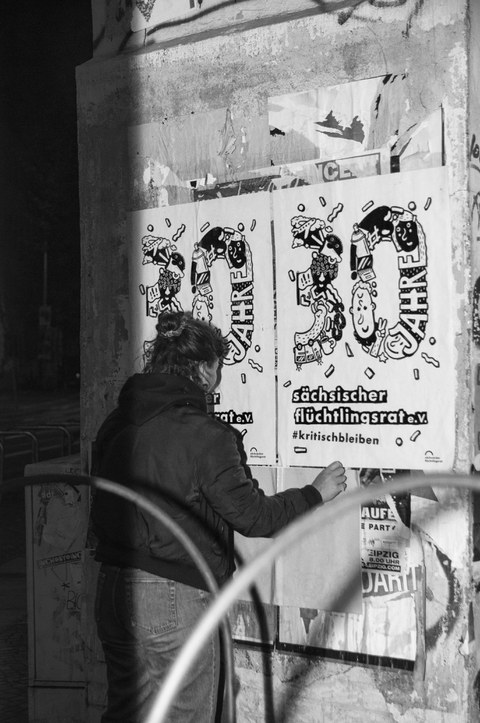Apr 24, 2023
Archiving MigOst: New project at TU Dresden reveals testimonials of East German migration history
The reappraisal of the GDR's and East Germany's migration history has long been neglected, but in recent years it has become increasingly relevant. This has become evident through the numerous projects that investigate the role of migrants in the GDR and in East German society after 1989. Since 2021, the Center for Integration Studies at TU Dresden has been running the citizen science project “Telling the Real History of East German Migration” (MigOst), which organizes storytelling events in cooperation with migrant-led organizations and records the life stories of members of these migrant communities.
As a result of their efforts, the MigOst researchers repeatedly discovered photographs and documents of political work, such as statutes, minutes, case files, concepts, correspondence and programs, as well as evidence of educational, cultural and public relations work. The documents bear witness to the history of migrant-led organizations in East Germany and are indispensable for a culture of remembrance that takes migration into account. At the moment, these documents are difficult to find and access to them is limited.
The new project “Archiving MigOst - Institutionalization of Migrant-led Organizations in Dresden - Indexing of Archives” will provide supporting in viewing, indexing and using these bases of knowledge. In archiving workshops, the archiving by migrant-led groups themselves will be explored and evaluated. These workshops will be held in Dresden in cooperation with five project partners (supporters and migrant-led organizations). The partners include Afropa - Association for African-European Communication (2203-present) with its predecessor Palhota (founded 1994), Dresden’s Council for Foreign Nationals (1990-present), Saxon Refugee Office (1991-present), Vietnamese Association (1999-present) and the Ecumenical Information Center Dresden (1989-present, with predecessors being founded in the late 1980s).
In order to facilitate findability and long-term access for research purposes and for other migrant-led organizations, the documents (or their digital copies) will be subsequently listed in the Life History Archive (Lebensgeschichtliches Archiv) collection of Dresden’s Institute for Saxon History and Ethnology (Institut für Sächsische Geschichte und Volkskunde Dresden, ISGV). In addition, a handout will be produced to make the archiving system accessible to other migrant-led organizations.
For this project, Archiving MigOst will receive funding from the Federal Foundation for the Study of the Communist Dictatorship in East Germany amounting to approximately 91,000 euros. The two-year project started on April 1, 2023.
Contact:
Project leader: Dr. Karoline Oehme-Jüngling (TU Dresden)
Project staff: Paolo Le van (TU Dresden), Nick Wetschel (ISGV)
Email:


